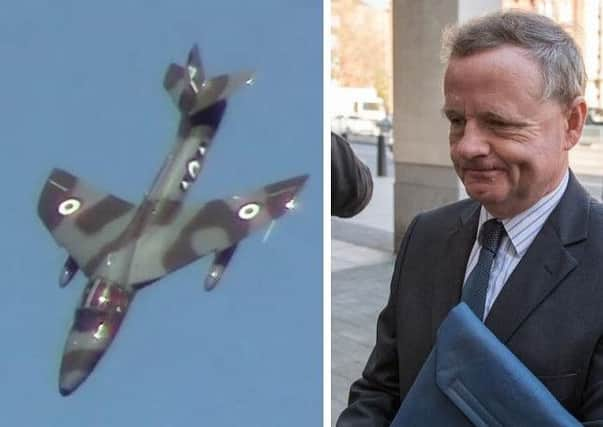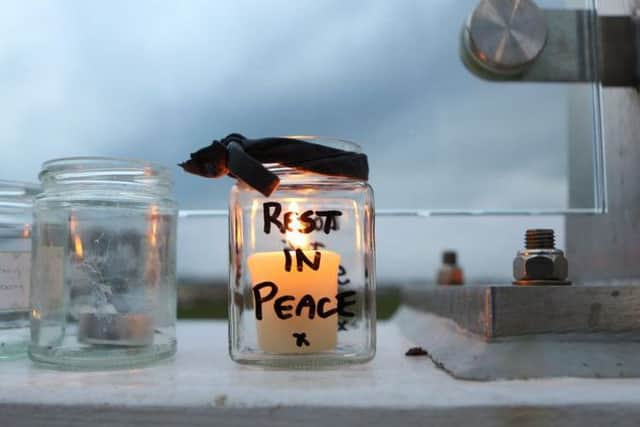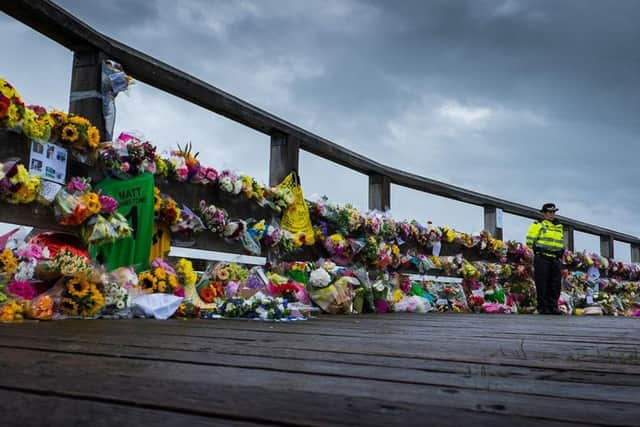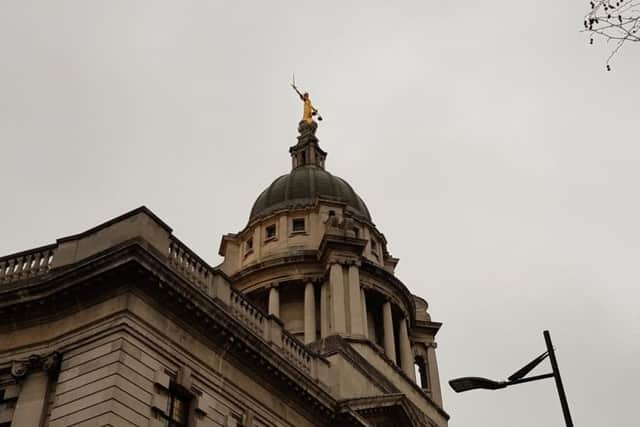Andy Hill found not guilty - 10 key moments from the Shoreham Airshow crash trial


Hill, 54, of Standon Road, Buntingford, had been flying a Hawker Hunter jet in 2015 when it crashed onto the A27 and led to the deaths of 11 people.
The tragedy tore families apart and sent shockwaves through the community.
Advertisement
Hide AdAdvertisement
Hide AdThe affects of the disaster are still being felt in the area today.


Following a trial pilot Andy Hill was today found not guilty of all 11 charges of manslaughter by gross negligence.
Now, after eight weeks of evidence at the Old Bailey in London, we look back at some of the key moments from the trial:
Prosecutor opens the trial: 'pilot error' led to crash tragedy
Advertisement
Hide AdAdvertisement
Hide AdProsecutor Tom Kark QC began the trial with an opening address to the jury, setting out the case for the Crown Prosecution Service (CPS).


“The effects of that crash were devastating, and 11 people lost their lives as a result.
“Mr Hill miraculously escaped, because his cockpit separated from the rest of the aircraft ending in a ditch, his seat was left lying on the ground.
“The crash happened purely by pilot error.”
Hill 'a thousand feet below the safety height'


The trial heard that Hill was up to 1,000 feet below the required safety height for the loop manoeuvre.
Advertisement
Hide AdAdvertisement
Hide AdMr Kark said: "There was a straightforward escape manoeuvre that could be performed."
He told the court that there was no evidence that a fault with the aircraft contributed to the crash.
Defence issues opening statement: Hill was 'cognitively impaired' before the disaster
On day two of the trial, Hill's defence barrister Karim Khalil QC said his client was not in control of the aircraft during the fateful 'bent loop' stunt.
Advertisement
Hide AdAdvertisement
Hide AdHe told the court: "He is not a cavalier pilot and is not a pilot who was - as has been suggested - playing fast and loose with the lives of onlookers.
"We say that this may not have been about pilot error at all because Andy Hill may not have been in control of what he was doing.
"A proper analysis of the last manoeuvre leads one to the conclusion that he was suffering from cognitive impairment and he was not in full control of his actions.
"Nobody could have made those various errors if they were fully in control of what they were doing and was aware of the situation that was developing. They were simply too numerous."
First witness: Pilots should practice emergency escapes
Advertisement
Hide AdAdvertisement
Hide AdAirshow flying director and RAF veteran Rodney Dean was the first witness called to give evidence in the trial.
He said pilots should practice what they would do in the case of an emergency like engine failure.
He told the court: "The aircraft is of secondary importance to the people on the ground.
"Pilots should at least - at the very least - work through in their mind what their actions should be in the event of an emergency."
Andy Hill's statements to police
Advertisement
Hide AdAdvertisement
Hide AdIn statements issued to police in 2017, Hill said that he could not remember the events leading up to the disaster, or the crash itself.
Hill said in his 2017 statement, later read out in court: “I have no recollection of the accident or the events leading up to it “
It is possible I experienced ALOC [altered level of consciousness].
“It is also possible that I may have suffered a cognitive impairment for other reasons or a medical issue.”
Advertisement
Hide AdAdvertisement
Hide AdTop pilot made error trying to recreate 2015 stunt that ended in tragedy
On Monday, February 11 the jury heard how an expert pilot trying to recreate the stunt that ended in tragedy at the Shoreham Airshow made an error himself.
Elite pilot David Southwood pulled up up with just 200ft to spare.
A video shown in court showed him a similar plane to the Hawker Hunter which crashed in 2015.
Advertisement
Hide AdAdvertisement
Hide AdDefence barrister Mr Khalil made the point that Mr Southwood was a pilot at the top of his field and yet still made this error.
Mr Southwood said: “Every pilot makes error every time you go flying.
“I have certainly never made an error allied to this while display flying.”
Andy Hill takes the witness stand: I was not 'cavalier or thrill-seeking'
Advertisement
Hide AdAdvertisement
Hide AdWhen it was his turn to take the witness box, veteran pilot Hill told the trial about his career in the RAF which included time in the famous Harrier aircraft.
He spent a month in Iraq flying the jet as part of the RAF force monitoring the no-fly zone in the late 1990s.
The court also heard that Hill received an award for a computer program he wrote to try and increase safety in a newer version of the Harrier jet.
Defence barrister Mr Khalil asked him: "It has been suggested by the Crown that you were in some way a cavalier or thrill-seeking pilot."
Advertisement
Hide AdAdvertisement
Hide AdMr Hill replied: "I would say I was probably one of the least people that applied to in the sense that there are ways to be cavalier and some people are and some people are not.
"I believe I took a very structured, disciplined approach to it and held back from areas I was uncomfortable with doing.
"It was the primary aim of the air display to avoid risk."
Aviation expert: pilot was cognitively impaired
Aviation safety expert Dr Stephen Jarvis told the Old Bailey today that Hill made up to 12 errors in just 23 seconds.
When asked what caused these errors, Mr Jarvis said the only explanation that satisfies him was that Hill suffered a form of cognitive impairment.
Advertisement
Hide AdAdvertisement
Hide AdDr Jarvis said the was a 'cascade of errors' towards the end of Hill's flight in the Hunter.
He added: "At that part of the flight errors start to be made and quite a lot of them."
Judge sums up the evidence: 'There has been very little factual dispute in the case'
Last week Mr Justice Andrew Edis told the jury that there was 'very little' disagreement over the facts in the trial.
Advertisement
Hide AdAdvertisement
Hide AdWith all the evidence finished, it is was up to him as trial judge to provide a summary of the case to the jury before they retired to consider their verdict.
Mr Justice Edis said: "There has been very little factual dispute in the case.
"There has been very little disagreement between witnesses about things which have happened."
He pointed to the crux of the case - the question of why the disaster happened.
The jury were sent out on Monday.
Andy Hill cleared of all 11 charges
Following eight weeks of evidence, pilot Andy Hill was today cleared of all 11 charges.